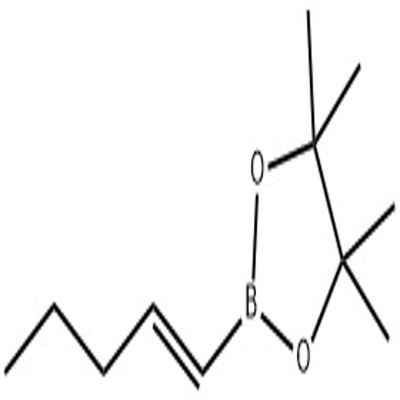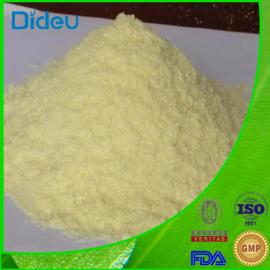-
Categories
-
Pharmaceutical Intermediates
-
Active Pharmaceutical Ingredients
-
Food Additives
- Industrial Coatings
- Agrochemicals
- Dyes and Pigments
- Surfactant
- Flavors and Fragrances
- Chemical Reagents
- Catalyst and Auxiliary
- Natural Products
- Inorganic Chemistry
-
Organic Chemistry
-
Biochemical Engineering
- Analytical Chemistry
- Cosmetic Ingredient
-
Pharmaceutical Intermediates
Promotion
ECHEMI Mall
Wholesale
Weekly Price
Exhibition
News
-
Trade Service
Text . . . Tao Libo, a researcher at the Center for Health Policy and Technology Assessment of Peking University's Department of Medicine, said that while many social activities have stagnated as a result of the new crown outbreak, China's health care work has been steadily moving forward, and many heavyweight reform measures have been introduced.
year can be called the big year of our health insurance policy.
September 18, the National Health Insurance Administration issued the "2020 National Health Insurance Drug Catalog Adjustment through formal review of the list of declared drugs" (hereinafter referred to as the "List"), once again caused great concern.
well known, the adjustment of medical insurance drug catalog has been a hot spot in China's pharmaceutical industry, because of the huge impact of medical insurance access and reimbursement on the pharmaceutical market.
the time interval between china's catalog adjustment is uncertain, often several years without adjustment, the longest reached 7 years, significantly affecting the promotion of medical treatment of insured people and the development of the pharmaceutical industry.
in view of this, in recent years, the national health insurance clearly put forward the "dynamic adjustment" of the policy idea, to update the annual list of medical insurance drugs.
2020 catalog adjustment is likely to be the beginning of a dynamic adjustment, with far-reaching impact on its workflow and rules, and is therefore high-profile.
1, the current release is only "through the form of review" directory according to the health insurance bureau issued policy information, this catalog adjustment will be divided into enterprise declaration, expert review, negotiation bidding, catalog updates and other stages.
of which the enterprise's self-declaration is from August 21 to 30.
of the enterprise declaration, after more than half a month of formal review, on September 18 by the Health Insurance Bureau issued the "list", followed by a follow-up review phase.
So, the products currently reviewed through the form, but "formally" eligible, complete information, can become a candidate variety, into the next assessment stage, and from the real health insurance catalog access, there is still a long way to go.
the value and characteristics of these varieties really meet the needs of health insurance? How will the final health insurance payment be determined? There are still a lot of variables.
, it is indeed too early for many of the manufacturers who are now on the List to rejoice.
of course, it is worth pointing out that the independent declaration of enterprises and formal review, but also the health insurance catalog adjustment rules worthy of affirmative progress.
In past catalog adjustments, the screening of candidate drugs and the determination of the negotiating catalogue are the work within the Health Care Administration, and there is little room for enterprise participation, often only after they have been identified (e.g., the list of negotiations, after the development of health insurance to inform enterprises, and enterprises may be reluctant to participate in negotiations).
the current rule is for willing businesses to voluntarily submit applications and then respond to health care, which is a more equitable and efficient approach.
2, the next step to review the screening form review, from a reasonable point of view, should be entered into the substantive review.
While, as external observers, it is difficult to understand the subsequent data review and product screening process within the health-care sector, it is clear that the 751 varieties that have passed the formal review need to continue to be analysed and classified, and that these various types of medicines are clearly not suitable for "one size fits all" treatment.
based on the rules issued by the Health Insurance Administration, the varieties declared by the enterprise are new crown treatment program drugs, 2018 base drug species, urgent need or encouragement of catalogue drugs, second batch of collected varieties with volume, new generics listed between January 1, 2015 and August 17, 2020 There are seven types of drugs, varieties with significant changes in adaptive disorders between 1 January 2015 and 17 August 2020, and a total of seven varieties entering five or more provincial health insurance catalogues by the end of 2019, as well as negotiated varieties for adjustment of payment standards and expansion of adaptations during the validity period of the directory agreement.
these different and varying kinds of medications require careful review by health care administrators and relevant experts to determine which ones really meet their health care needs.
these varieties that have passed the formal review, and it is not surprising if they have failed to go on.
3, the determination of the price paid for health insurance after the review, identified a new drug in line with the needs of health insurance, followed by a more complex and intense game, that is, the determination of the price paid.
the medicare drug catalog, which is essentially a drug purchase, means medicare agrees to buy the drugs.
core of the purchase transaction is the price problem.
very good new drugs, if the price is too high, it is not cost-effective for buyers;
, the determination of the price paid is the key to the adjustment of the health insurance catalog.
china's medical insurance drug management methods and the adjustment of this catalog policy, have made it clear: the price of payment will be determined, will be negotiated and bid two ways.
different pricing methods for drug candidates mean very different access paths and outcomes.
bidding means that multiple products compete through price to determine access eligibility, and low prices win.
if classified as a group bid, it means that Medicare considers these products to be homogenetic and replaceable.
a similar situation is in the band collection, the product that is evaluated by over-consistency is considered homogeneity and therefore can be auctioned.
in the Medicare catalog adjustment, if a new drug is to be marketed for entry, it means that there are other candidates who are considered "homogeneity", meaning that the new drug is not "exclusively innovative."
bidding, is a very powerful means of price squeeze.
to each other's products, must be based on their own cost line to the lowest possible price, in order to win, and based on the cost line of the price line, which means that the product profits are meager, the price moisture will be fully squeezed.
way to negotiate is to endorse the "exclusive innovation" of the drug candidate, arguing that the product is not suitable for bidding in the same group as other products, so health care needs to negotiate "one-on-one" pricing with companies.
negotiating pricing is an evidence-based price-testing process in which the intensity of price squeeze is significantly lower than that of bidding, and the profits retained by manufacturers are relatively high, which can also be seen as a reward for innovation.
and bidding are two distinct access pricing methods.
believe that if there is a choice, most manufacturers will choose to negotiate.
the organization and management costs of negotiating access are high, with only a small percentage of the 751 products reviewed expected to be negotiated and most bidding.
this is the case, enterprises should be fully prepared.
the most external concern about the choice of negotiation and bidding is the existence of a number of innovative drugs of the same type, such as PD-1/L1 drugs.
that seven PD-1/L1 drugs have passed the formal review, and some varieties have more than one application for allergy.
PD-1/L1 drugs are innovative oncology drugs with different generic names, but the differences in mechanisms and effects are not significant.
it remains to be seen whether Medicare will negotiate separately for these drugs, or whether it will use last year's bidding for innovative hepatitis C drugs.
4, sum up the medical insurance drug catalog adjustment is a major event in the pharmaceutical industry, through the release of the form review list, is the catalog adjustment out of the first step, the adjustment work of the curtain officially opened.
the formal review, indicating only the completion of the complete review of the information.
enterprises can not slacken, followed by more substantive review and more challenging payment price determination, will be a great challenge to the reporting enterprises and their products, the road ahead is still very complex.
the 2020 health-care catalog is likely to be the beginning of a dynamic adjustment of the catalog, so its workflow and specifications will have a profound impact on future work.
all sectors of society are concerned about the follow-up work of the adjustment of the health insurance catalogue, especially the selection and implementation path of the varieties of negotiation and bidding, which has attracted much attention.
the price of health care, which has been adjusted, will also play a greater role in the standard of payment for health insurance.
the future and is worth looking forward to.
.







